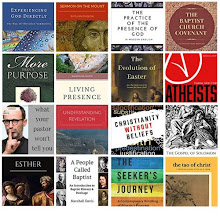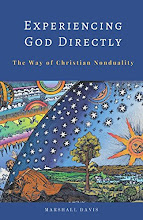I have an anxiety disorder,
which is a form of depression. Looking back, I have probably had it for
decades. At least since the early 1980’s and probably since the 1970’s, but it
went undiagnosed for much of my life. It gets worse at this time of year, being
exasperated by the seasonal phenomenon known as Seasonal Affective Disorder or
SAD.
As mental illness goes, my condition is not as serious as
others, but it can be debilitating at times. It has sent me to the ER on
several occasions, masquerading as a heart condition. I can be overwhelmed in certain
settings. Recently we drove to Concord to meet our niece who had flown in from
Michigan. The plan was to have lunch with her, and meet her daughter and new
boyfriend. But I was unable to sit in the restaurant for even a minute.
A while back I had to leave a worship service after a few
minutes because I could not tolerate being in the setting any longer. Groups of
people and especially public speaking trigger it. My anxiety was at its worst
about ten years ago after a serious bout of church conflict in Pennsylvania,
which caused me to leave ministry for a year. I refer to that as Post Traumatic
Church Disorder, but it is not a joking matter.
God certainly has a strange sense of humor in calling me to
a preaching and pastoral ministry. I love ministry, but it doesn’t love me. Very
early in my career a counselor told me, “You are good for the ministry, but the
ministry is not good for you.” My wife has repeated that refrain to me over the
decades. That is why I retired as soon as I hit age 66, and why I do little
public speaking now. I am content to do my spiritual teaching through writing
and podcasts.
Anxiety manifests even when there are no stressors in my
life. In fact right now, my life has less stress than ever. I am retired and loving
it! Yet my anxiety has gotten worse this fall as the days have gotten shorter.
It has to do with brain chemistry that regulates mood. I have received medical
treatment for the condition, including trying different medications and
counseling. I use light therapy, practice daily meditation and daily exercise.
Yet the anxiety continues.
I am writing about my condition now, not to elicit sympathy
from readers but to address the subject of mental health in a spiritual
context, which is seldom done. Depression and anxiety – as well as other forms
of mental illness - afflict the religious as well as the unreligious, the
spiritually minded as well as the unspiritual. It is a medical condition and
not a moral lapse or spiritual failing. Yet
so often in Christian and other religious circles, depression and anxiety are
viewed as signs of spiritual failure.
It is too often assumed that if one has enough faith or is
spiritually mature, then one’s life will be so filled with divine peace that no
mental or emotional trouble could arise in one’s mind or heart. That is a lie. The
spiritual life encompasses all aspects of human life. Some of the greatest
saints, prophets and spiritual teachers of history were, I suspect, a little
bit crazy. That is what Jesus’ family thought about him! Which makes me feel
much better.
Mental illness is physical illness. The brain is a physical
organ which can malfunction like any other organ. Blaming mental illness on the
person is like telling a woman with breast cancer that it is her fault. God does
not punish us or test us or try us with mental or physical illness. The Bible
puts that myth to rest in the Book of Job. All types of suffering happens to all
types of people, as the suffering of Jesus shows. The gospel says that Jesus
was “sorrowful and deeply distressed” and admitted to his friends, “My soul is
consumed with sorrow to the point of death. Stay here and keep watch with me.”
Like every other difficulty in life, mental and emotional
problems are opportunities for spiritual formation. The apostle Paul had his
own “thorn in the flesh,” which is usually assumed by commentators to be some
type of physical affliction. In 2 Corinthians 12 he relates wonderful spiritual experiences he had, which he
describes as being caught up to “the third heaven.” He says he “was caught up into paradise and heard
things too sacred to be put into words, things that a person is not permitted
to speak.” Then he proceeds to describe what came afterwards.
“Therefore, so that I
would not become arrogant, a thorn in the flesh was given to me, a messenger of
Satan to trouble me—so that I would not become arrogant. I asked the Lord three
times about this, that it would depart from me. But he said to me, “My grace is
enough for you, for my power is made perfect in weakness.” So then, I will
boast most gladly about my weaknesses, so that the power of Christ may reside
in me. Therefore I am content with weaknesses, with insults, with troubles,
with persecutions and difficulties for the sake of Christ, for whenever I am
weak, then I am strong.”
Like Paul I also have been blessed with spiritual experiences,
including an ongoing sense of the presence of God which is “too sacred to be
put into words.” I have written about that in this blog, and in my books, and spoken about it in
my podcast. And like the apostle, I have been given a thorn in the flesh. I
have asked more than three times that it depart from me. The Lord’s answer appears
to be the same as to Paul: “My grace is
enough for you, for my power is made perfect in weakness.”
It certainly feels like weakness to me. I am never more
aware of my helplessness and vulnerability as when I am experiencing
overwhelming anxiety. But I have found that even this particular weakness can
be used for a spiritual purpose. Like Paul it keeps me from pride and
arrogance, or thinking of myself as more spiritual than anyone else. It humbles
me.
Paul calls his affliction a “messenger from Satan,” and my affliction
can certainly feel that way. But I also see it as a gift from God in disguise –
a sheep in wolf’s clothing. My own condition has given me empathy for those who
suffer from all forms of mental illness, and it has awakened me to the need for
better healthcare and health insurance to treat mental illness.
Personally it forces me unconditionally into the arms of my
Savior, and to trust in Christ and Christ alone. For there is no better place
to go. Christ gives me hope. “For I
consider that our present sufferings cannot be compared to the glory that will
be revealed in us.” And “we know that
all things work together for good for those who love God, who are called
according to his purpose.” And one more:
“In all these things
we are more than conquerors through him who loved us. For I am convinced that
neither death nor life, neither angels nor demons, neither the present nor the
future, nor any powers, neither height nor depth, nor anything else in all
creation, will be able to separate us from the love of God that is in Christ
Jesus our Lord.”
The apostle Paul understands me so well. Sometimes I wonder
if his “thorn” was actually a mental illness rather than a physical illness.
That would explain a lot of his writings. It certainly explains a lot of mine!

















